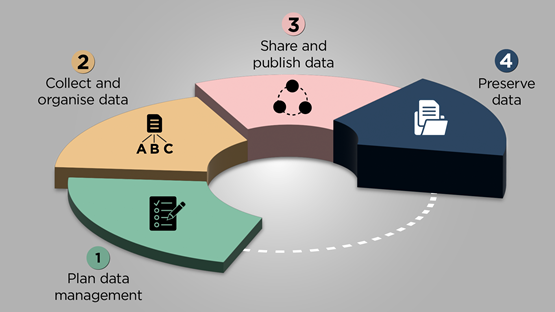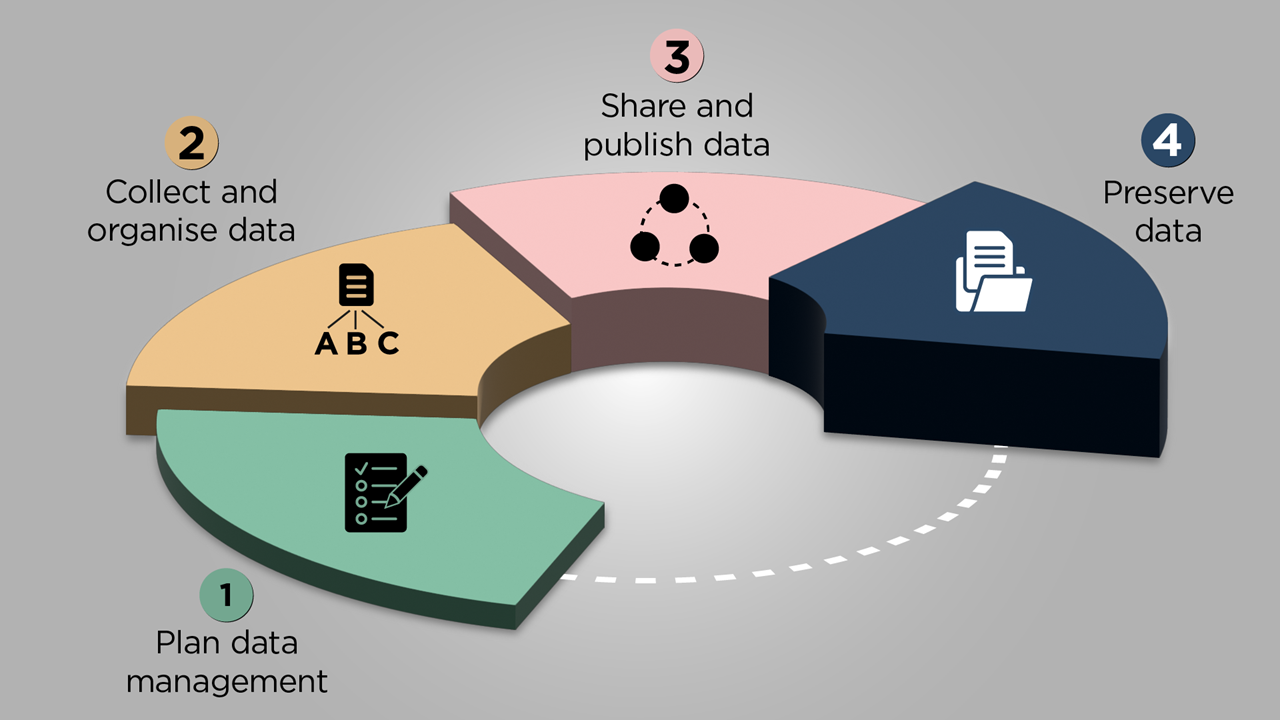What is research data?
Research data is any data you produce or collect as part of your research. For example, it can be data from measurements, statistics, or interview material.
For your research to be credible, it is important that others can review and reuse your data. It is also increasingly common for funders and journals to make demands on how your data is handled and shared.




